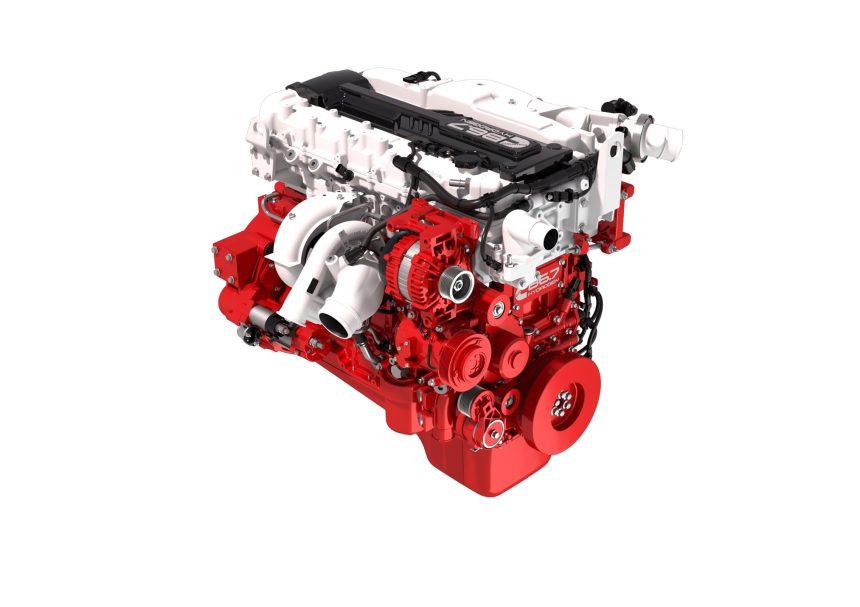Cummins and its technology partners have completed a joint project to develop hydrogen internal combustion engine technology for medium-duty commercial vehicles including coaches and buses with the B6.7H unit.
The engine manufacturer worked with Johnson Matthey, PHINIA and Zircotec to successfully deliver a hydrogen-fuelled version of its established B6.7 engine platform. The work has been match-funded by the UK government and facilitated by the Advanced Propulsion Centre (APC).
Cummins first shared details of the B6.7H unit at Busworld Brussels in 2023. Partners in the project developed the engine concept based on the manufacturer’s proven spark ignition platform and it has delivered “significant improvements in H2-ICE engine performance and durability,” Cummins says.
Hydrogen fuel injection technology is from PHINIA and aftertreatment catalyst and advanced metals chemistry development was sourced from Johnson Matthey. Hydrogen barrier coatings come from Zircotec.
Through use of zero-carbon hydrogen fuel and the presence of an aftertreatment system, the B6.7H delivers a claimed more than 99% reduction in tailpipe carbon emissions and “ultra-low” NOx emissions compared to Euro VI diesel standards, Cummins says.
It adds that hydrogen combustion engine technology “is widely seen as a viable path to reducing the air quality impact of heavier-duty or longer-range applications.”
Cummins Executive Director – Product Strategy Jonathan Atkinson says that the work – christened Project Brunel – “has successfully delivered a viable, familiar power option that meets the operating requirements of today’s commercial vehicles – with zero-carbon fuel and without the need for a complete vehicle redesign.”
While the B6.7H has been created for medium-duty use cases, Cummins notes that the design is scalable to heavy-duty applications. It is already developing a 15-litre hydrogen combustion engine.
Mr Atkinson adds a hope that the government will recognise “the technology’s potential for commercial vehicles beyond 2035 and 2040, to align regulation with other major global markets.”
APC says that the project “offered a significant opportunity for the UK to create a high-value H2-ICE manufacturing base and a competitive export business,” says Senior Project Delivery Lead Matt Shillito. “It has been a pleasure working with the consortium on this project, and we look forward to seeing success in the market for all the partners.”



























